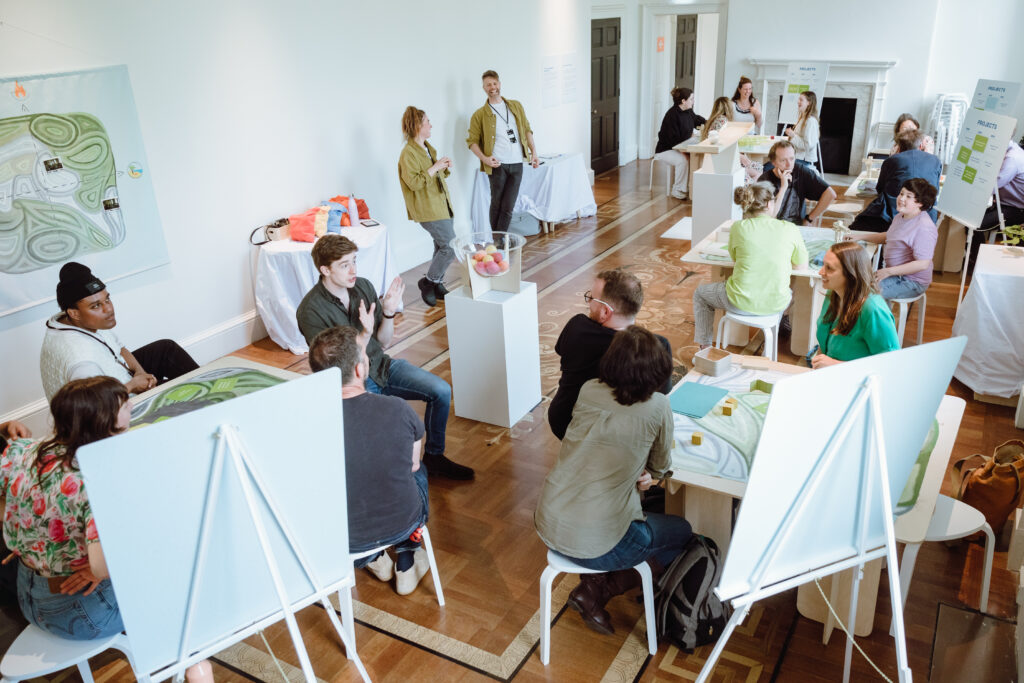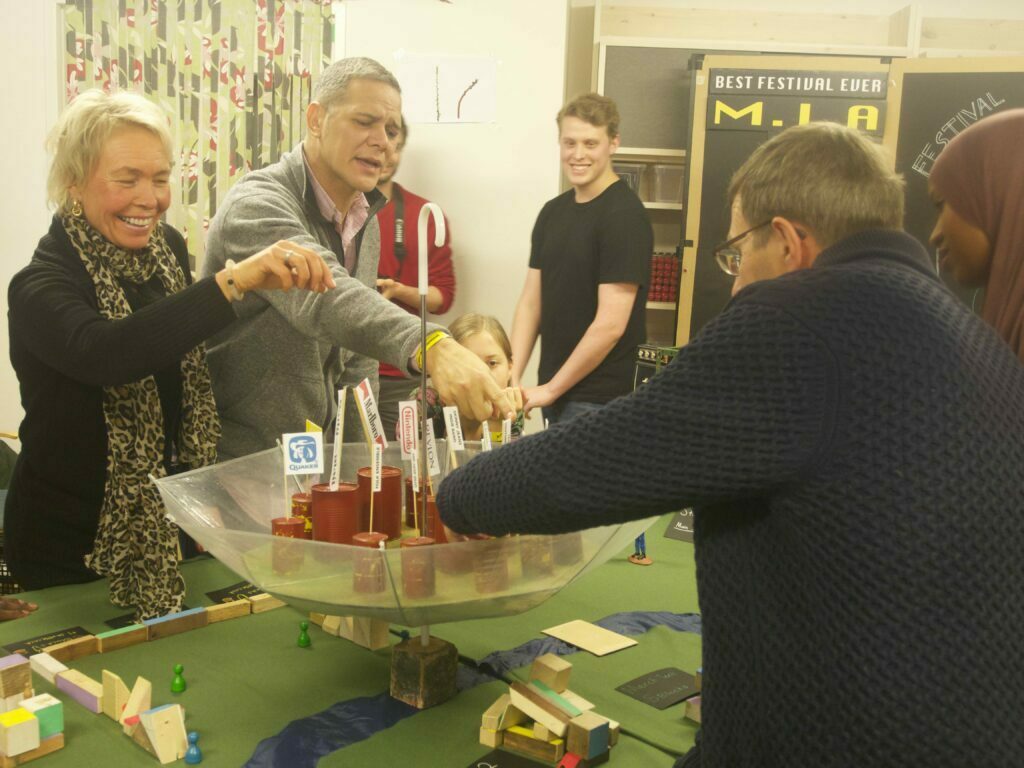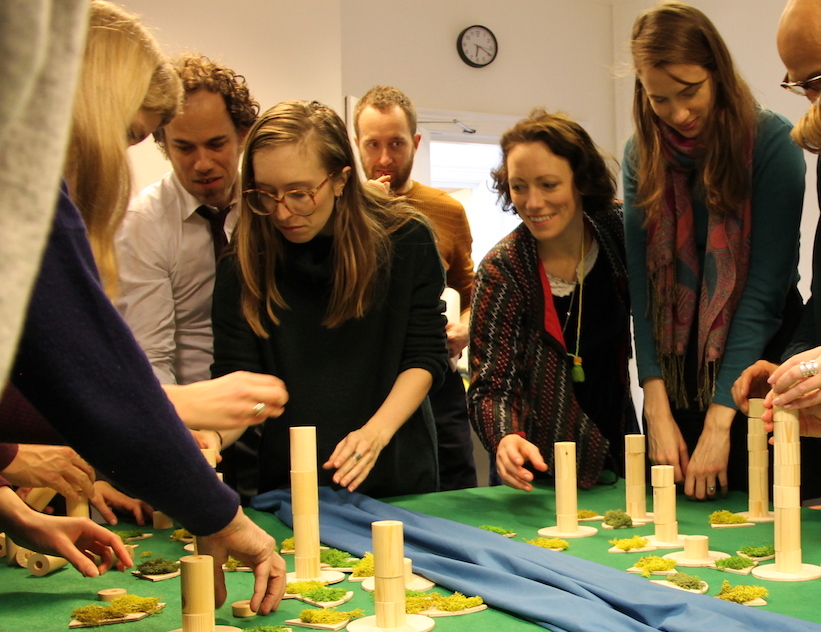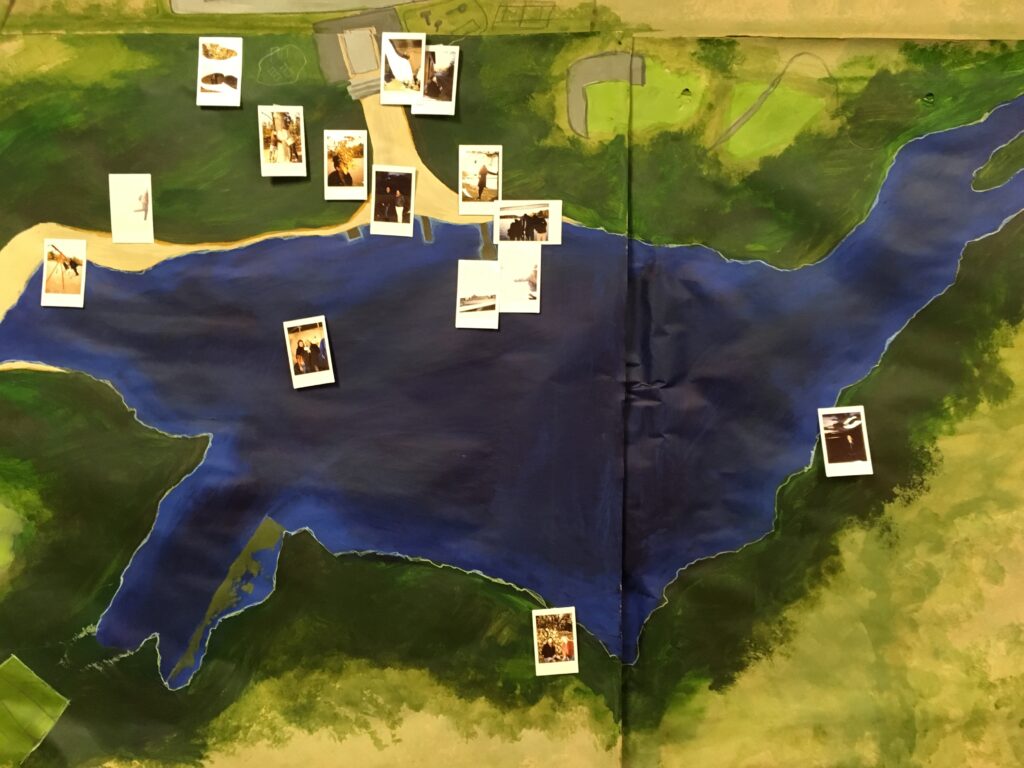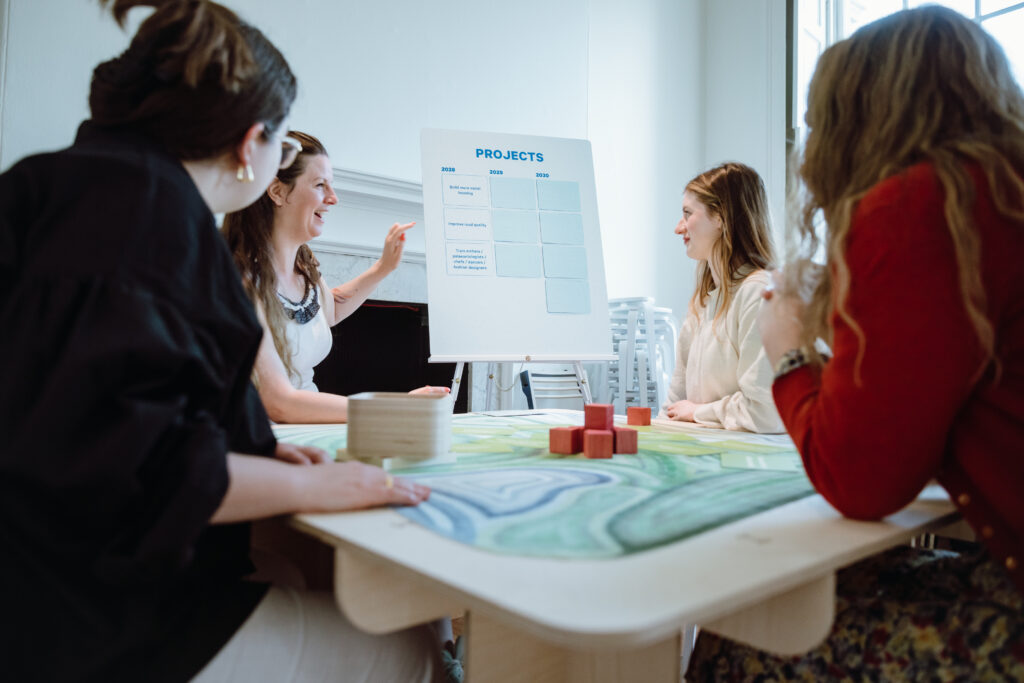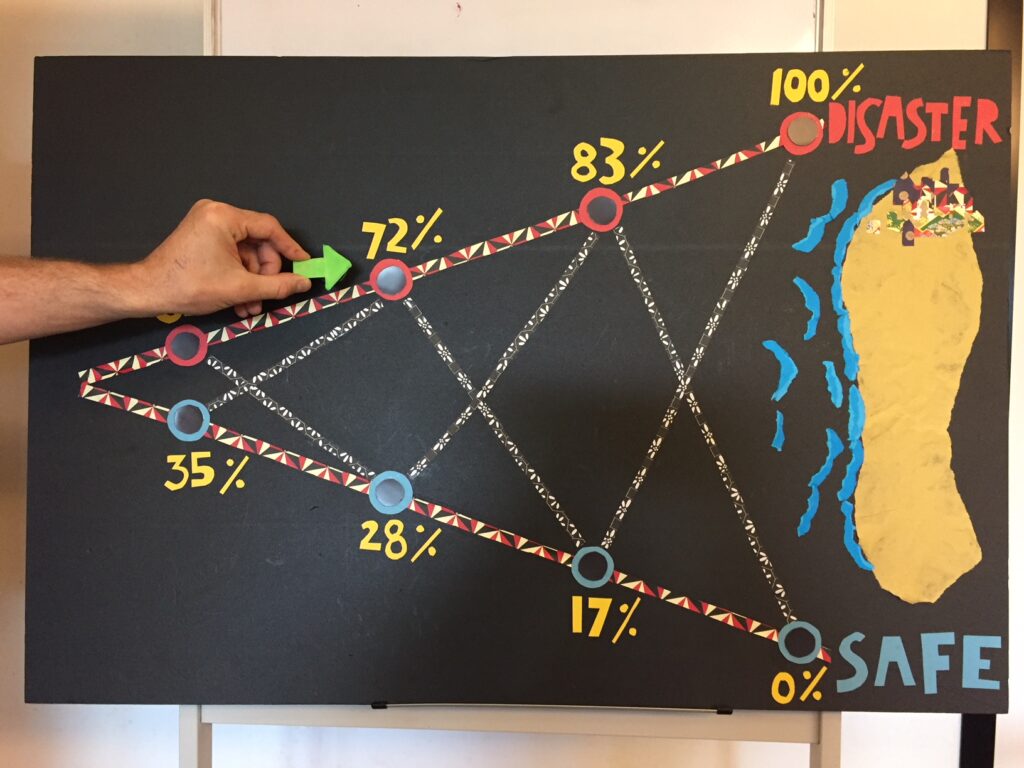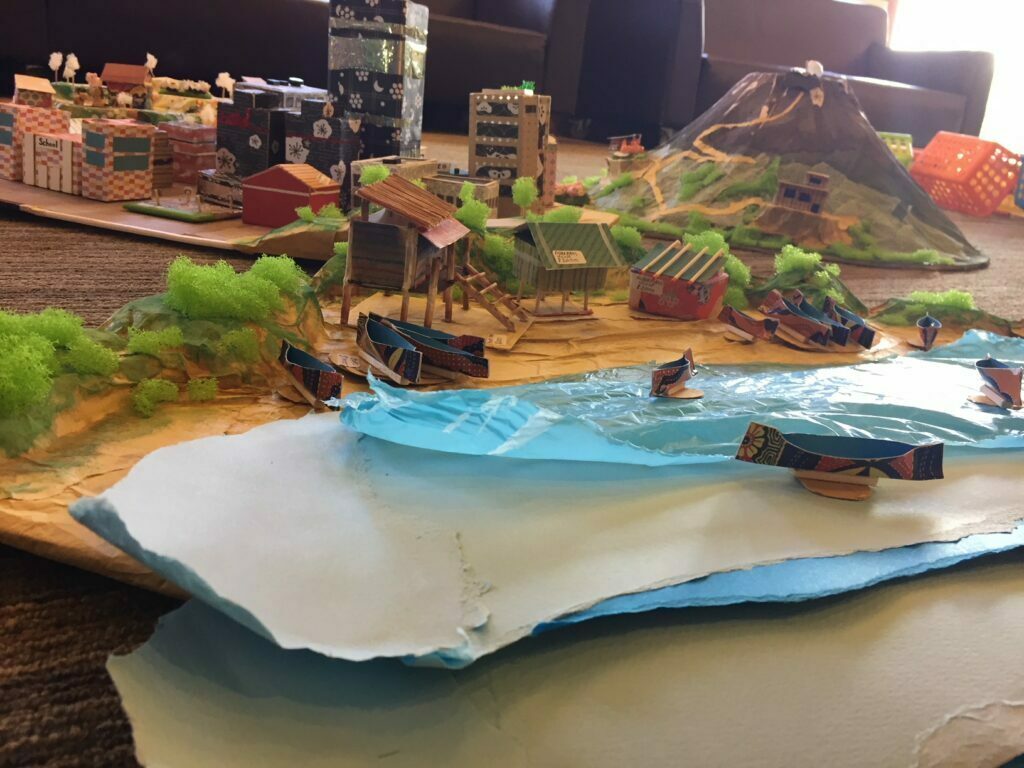Geoengineering games
We face an enormous challenge.
In the face of escalating environmental change, we need to shift globally to a low carbon energy system. At the same time, we need to adapt our infrastructure for shocks which will keep escalating for decades to come.
The urgent need for both mitigation and adaptation is opening up the space for conversation about geoengineering.
Geoengineering is a broad term, referring to large-scale interventions in the earth system intended to alter the climate.
We propose to develop a series of games exploring the challenges and trade-offs involved in these interventions.
These games will be played with policy-makers, NGOs and communities, to facilitate public conversations about these issues.
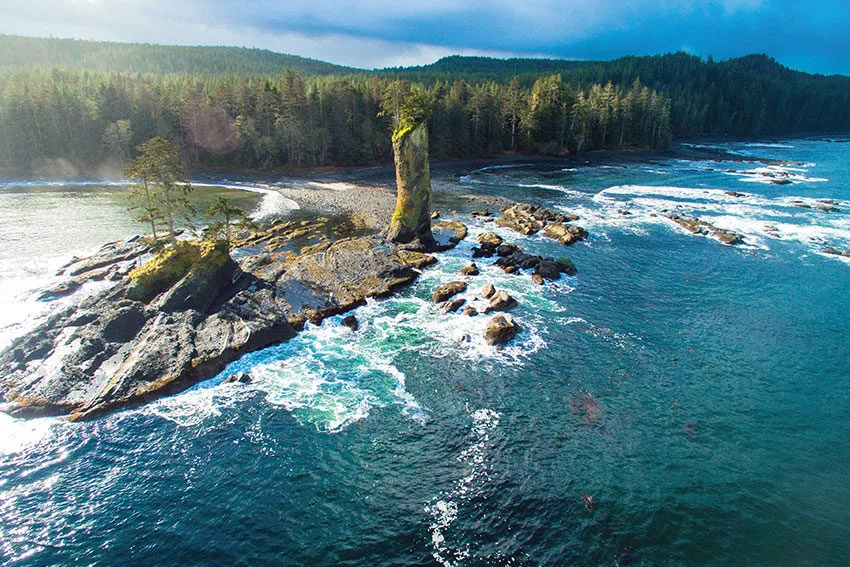
A GEOENGINEERING SYSTEMS MAP
Geoengineering projects exist somewhere in between social intervention, infrastructure and technology. They can be grouped under two loose headings:
1. Carbon capture
2. Addressing symptons
— — —
1. Carbon capture
Carbon capture projects seek to capture carbon from the atmosphere and store it in the ground or the ocean. This includes what can be described as biological methods, including:
- Kelp cultivation
- Bioenergy with carbon capture and storage (BECCS)
- ‘Nature-based solutions’ such as:
- Regenerative agriculture
- Afforestation
- Soil carbon sequestration
- Biochar
- Blue carbon
Carbon capture also encompasses geologic methods — capturing carbon through various technologies and injecting it directly into the rock or the bottom of the ocean, such as:
- Direct air capture
- Enhanced rock weathering
- Ocean fertilisation
- Carbon capture and storage at power plants (CCS)
2. Addressing symptoms
Alongside carbon drawdown projects are projects designed to address the symptoms of climate change, to cool the planet down or to prevent us from hitting certain dangerous tipping points. Projects here include:
- Marine cloud brightening
- Solar geoengineering — blocking sunlight from hitting the earth
- Genetically modifying corals to better withstand heat
- Building seawalls to stop glaciers from sliding into the sea.
To make a meaningful impact on the planet, these projects will need to be implemented at the scale of the whole human-earth system.
At this stage, many of these projects don’t exist beyond a prototype, and sometimes not even that.
Nevertheless, geoengineering projects have already been folded into our projections for the future. Every climate scenario that sees us avoiding warming of more than 2 degrees celcius factors in massive amounts of carbon drawdown, using one or more of the methods listed above.
We urgently need well-informed public conversation on this topic. Games and experiential models can be useful instruments in this process, offering space to explore different outcomes and engage stakeholders in rich discussions.

THE GAMES
We propose to create a series of ‘systems games’ illustrating the trade-offs involved in making decisions about geoengineering projects.
Developed in collaboration with researchers scientists and policy-makers working in this space, these games will explore resource management, land use, policy negotiations and climate scenarios.
Players will take on the role of decision-makers faced with responding to climate threats, debating between carbon drawdown and addressing symptoms, and navigating the consequences of their decisions.
Some games will focus on specific projects in detail. Others will take a high-level view of the entire system, allowing players to compare and contrast different approaches.
The games will include physical games for groups of players around a table, and digital games for people engaging remotely.
Games will range in scope from a brief 20 minute activity to a detailed half-day scenario for up to 30 players.
Through hands-on interaction and negotiation, these games will take players into the emerging debates surrounding geoengineering, exploring the root causes of climate change and addressing accountability, reckoning and reparation.
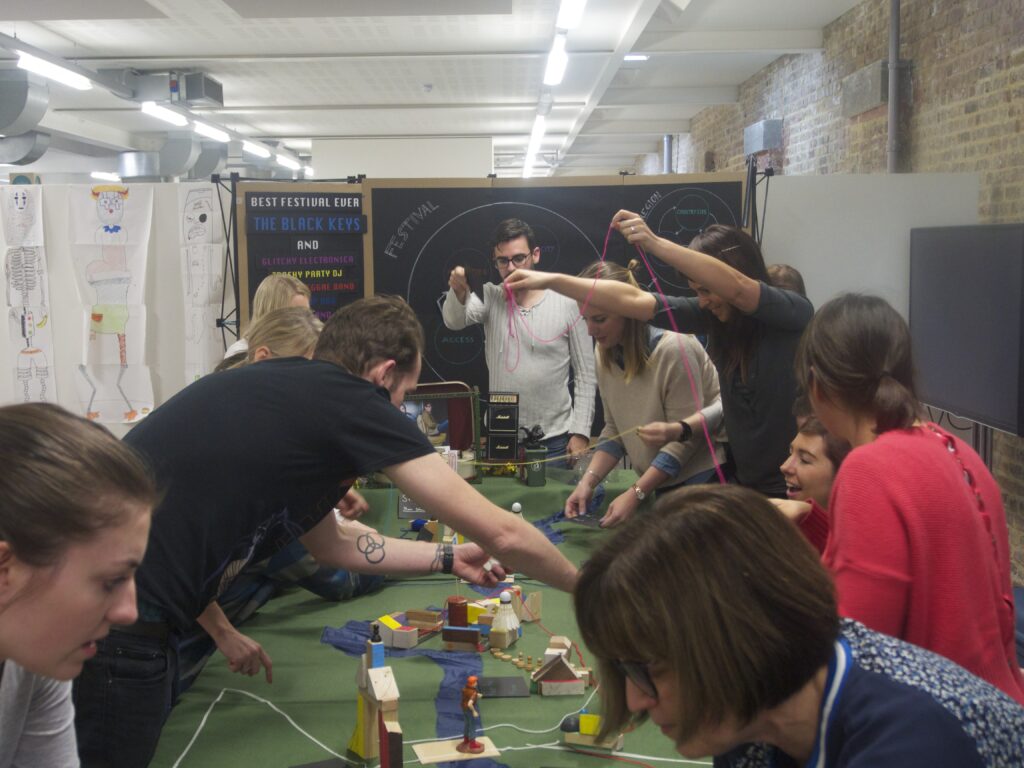
ENGAGING BROADER COMMUNITIES
Many of the geoengineering projects that have been proposed could be beneficial — or they could be actively destructive.
Some of the question of ‘should we or shouldn’t we?’ depends on who is making the decision.
A large-scale solar geoengineering project proposed by the people of Bangladesh and Fiji, guided by an international treaty, is very different to a project proposed and delivered by Silicon Valley billionaires with no consultation.
But how do these diverse groups get a meaningful say in these conversations? This is where games and experiential models have a place — to open up the debate to new groups and communities.
These games are intended for a range of audiences, from policy-makers and NGOs, to communities on the front line of climate change. The games require no specific expertise to play, making them an excellent first introduction to these issues.
Following the games, facilitated debriefs will provide space for conversations about compensation for loss and damage, about transparency in research and about the moral accountability of climate change.
Geoengineering and the energy transition are not remote abstractions for people — they are real concerns that we all have a stake in.
A well-designed game can teach people about these concepts in a tactile and memorable way, and open up challenging conversations without being overwhelming.
Perhaps most critically, games can provide players with a attitude of play and experimentation, a reminder that the future is not fixed, that we create it collectively through our choices every day.

WHO WE ARE
We are a collective of game designers from Australia and the UK. We work with research scientists to develop games exploring complex systems and future scenarios. We have developed games for partners including the World Bank, Chatham House, the Stockholm Resilience Centre, University College London, the Earth Observatory Singapore, Climate Safe Lending and CSIRO.
You can see examples of previous games in our portfolio here.
For more background on our methodology and how we collaborate with scientists, see these essays.
To discuss these games, contact David Finnigan.
The following is a selection of images from recent games we have created:
